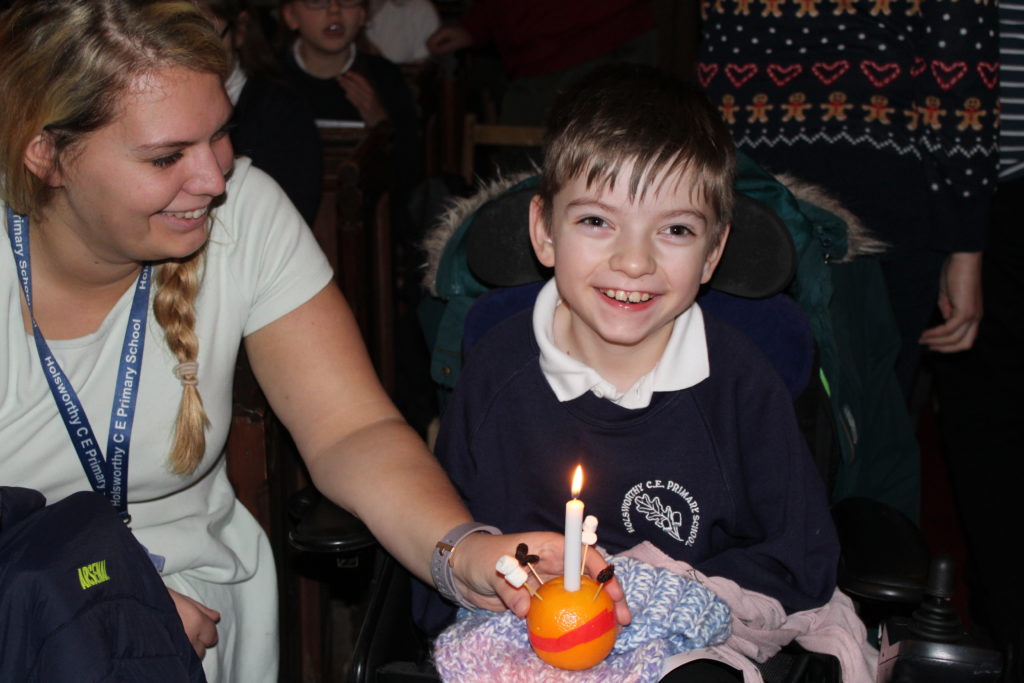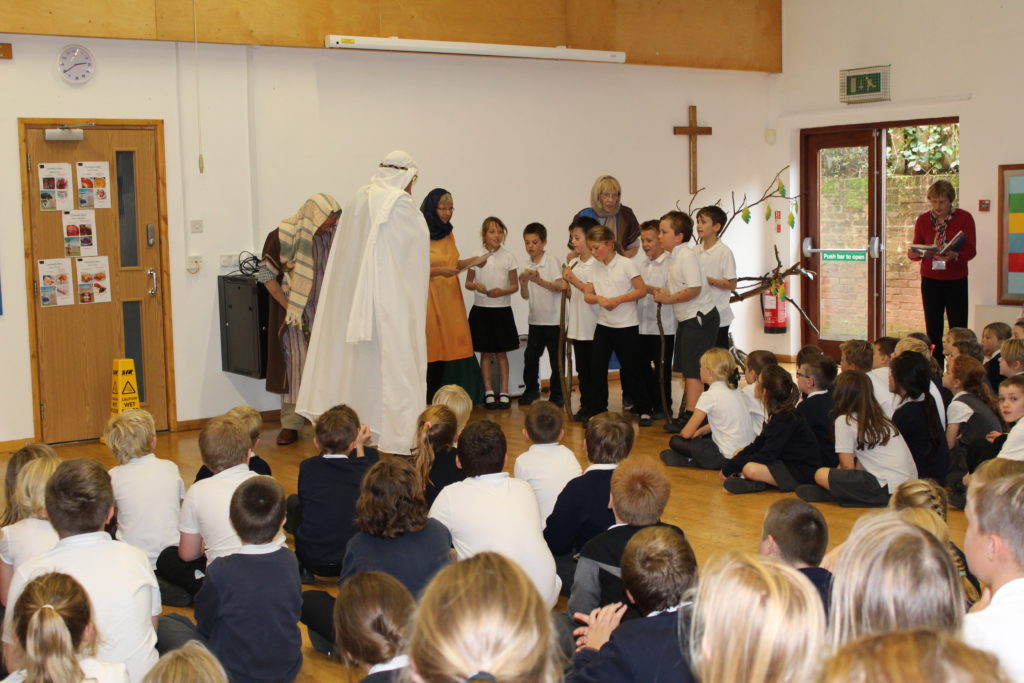Religious Education
In teaching a comprehensive RE curriculum at Holsworthy CE Primary School we intend to offer a structure through which pupils can encounter diverse religions and their traditions alongside non-religious worldviews. We actively seek to be outward facing and give children experience of religions and religious practice outside of their sphere of experience whilst maintaining our core ethos as a Church of ~England school. We intend to meet the principal aim of Religious Education: To explore what people believe and what difference this makes to how they live, so that pupils can gain the knowledge, understanding and skills needed to handle questions raised by religion and belief, reflecting on their own ideas and ways of living.


We intend to achieve this aim by planning and delivering the curriculum to incorporate a wide range of inspiring and motivational activities that make links across the curriculum to engage and motivate the children.
We believe the curriculum should be delivered with a consistency in practice and common understanding of the aims and requirements of the curriculum. We intend to achieve this consistent approach through shared best practice and culture of collaboration and continuous improvement in RE.
We have an on-going and continuous developing evidence bank for each classroom that inspires children’s pride and helps them to retain and reference key ‘sticky knowledge as well as skills and working practices in the subject. We also revise and revisit common themes throughout the curriculum for all faiths. Our RE curriculum focuses on Focus depth of enquiry and understanding through enquiry led lessons and targeted learning objectives.
The RE curriculum we have adopted inspires and encourages children to make sense, understand the impact and make connections across the RE curriculum and beyond. This also develops pupils’ own abilities to interpret, apply and consider implications for themselves in the wider world.
As a Church of England School, we have adopted the Devon syllabus which includes “Understanding Christianity” as recommended by the Dioceses and Church of England Education Office project. The key aims of this syllabus are:
- To enable pupils to know about and understand Christianity as a living world faith, by exploring core theological concepts
- To enable pupils to develop knowledge and skills in making sense of biblical texts and understanding their impact in the lives of Christians.
- To develop pupils’ abilities to connect, critically reflect upon, evaluate and apply their learning to their own growing understanding of religion and belief (particularly Christianity), of themselves, the world and human experience.
As stated in the syllabus, it is designed to support schools us in developing and delivering excellence in RE. It allows for and enables deepening pupils’ knowledge about religions and for developing their ‘religious literacy’. It does this by studying one religion at a time (‘systematic’ units), and then including ‘thematic’ units, which build on learning by comparing the religions, beliefs and practices studied.
In order to support teachers in exploring the selected beliefs, the syllabus sets out an underlying teaching and learning approach, whereby pupils encounter core concepts in religions and beliefs in a coherent way, developing their understanding and their ability to handle questions of religion and belief. Our school aims to serve its community by providing education of the highest quality within the context of Christian belief, policy and practice.
